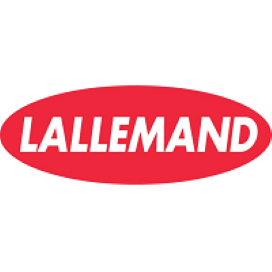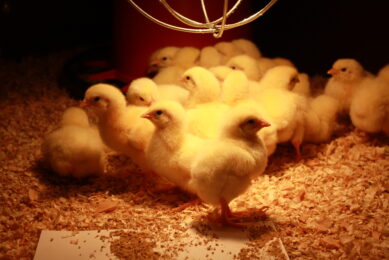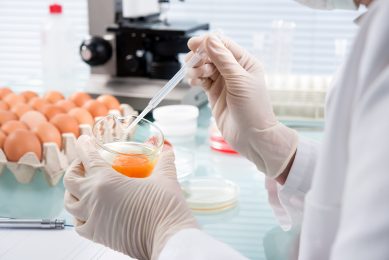20 years of breakthrough probiotic performance
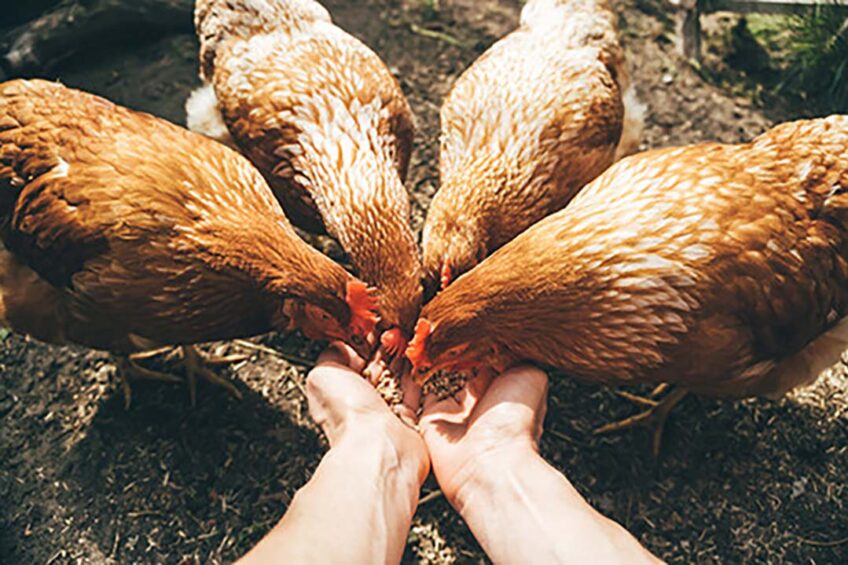
The poultry industry and scientific community acknowledge the interest of probiotics to sustain modern productions: for both zootechnical improvements and sanitary control, live microorganisms are more and more routinely used in the field.
Over the past 2 decades, literature has extensively documented the use of the probiotic Pediococcus acidilactici CNCM I-4622 (Bactocell) with more than 100 publications. This lactic acid bacteria has been specifically selected for monogastric for its ability to produce high levels of an exclusive form of L-lactic acid that is a direct source of energy for the birds: through its absorption at gut epithelial level or indirectly through a cross-feeding pathway (as a substrate for bacteria producing short-chain fatty acids, like the butyrate producers).
Scientific trials
The first scientific trial in layers was published in 2005, and many have followed since then, all over the world. Improved and more persistent laying rate, better eggshell quality are important parameters for producers, especially in the current context of the extended life cycle of hen (high pullets’ cost, lack of eggs…). A meta-analysis aiming at assessing the impact of this probiotic on the production performance of layers was performed after a massive campaign of trial collection (all at commercial dose: 1x10e9 CFU/kg of feed). A total of 62 studies have been compiled, including both academic and field trials, originating from 25 different countries, and using different but commonly used genetic lines.
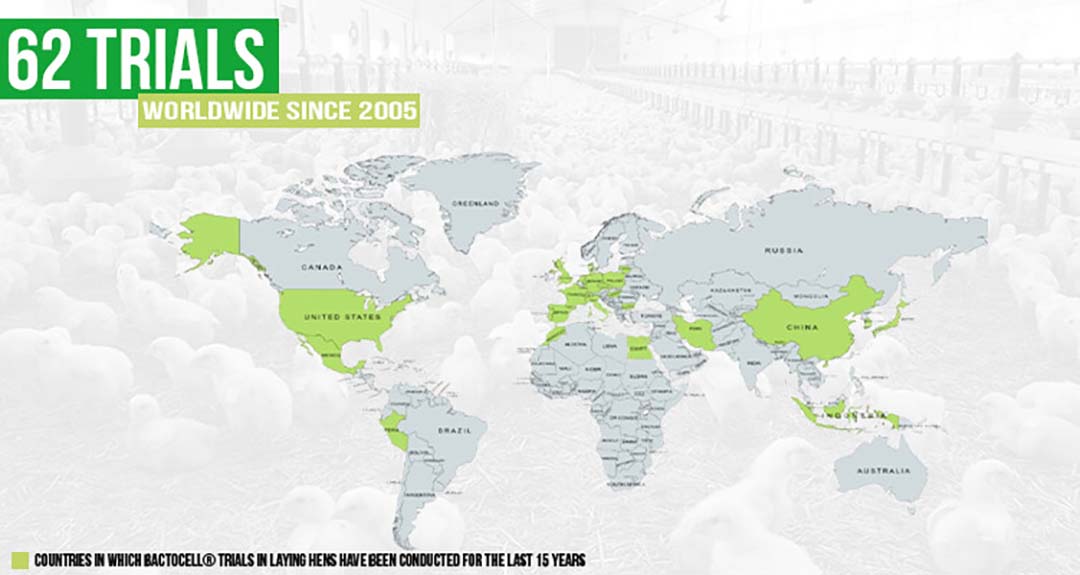
The studies were subjected to statistical analysis, using a Mixed Model approach, including treatment (supplemented or not), trial type (academic vs. field), housing type (cage: Yes vs No) and production phase (Full cycle: > 5 months; start of lay:18-35 weeks of age, middle of lay: 35-55 weeks old, end of lay:55-80 weeks old, extreme end of lay: > 80 weeks) as fixed effects. Additionally, the study was introduced as a random factor.
Benefits of using Bactocell
An important outcome of this meta-analysis is the consistency of zootechnical performances, regardless of the type of study, housing, or production phase for laying rate and egg weight. FCR was impacted by the type of housing, being significantly lower in cages. Mortality was lower in cages and higher for full-cycle studies. Supplementation with the probiotic significantly improved the laying rate by 2.7% (P<0.01) and reduced FCR by 3.1% (P<0.01). The average egg weight was 0.6 g higher for the Bactocell-supplemented hens (P<0.05). Higher laying rates and heavier eggs led to a significantly higher exported egg mass (0.361 vs 0.372 kg/hen/week; P<0.001). In addition, the incidence of broken/downgraded eggs was substantially reduced by 21% (P<0.05). The use of that lactic acid bacteria in the feed reduced mortality by 33% (3.1 vs 4.6 %; P<0.01). The latter positive effect was more pronounced for layers in non-cage systems compared to hens housed in cages (-36% vs -24% respectively, P<0.05).
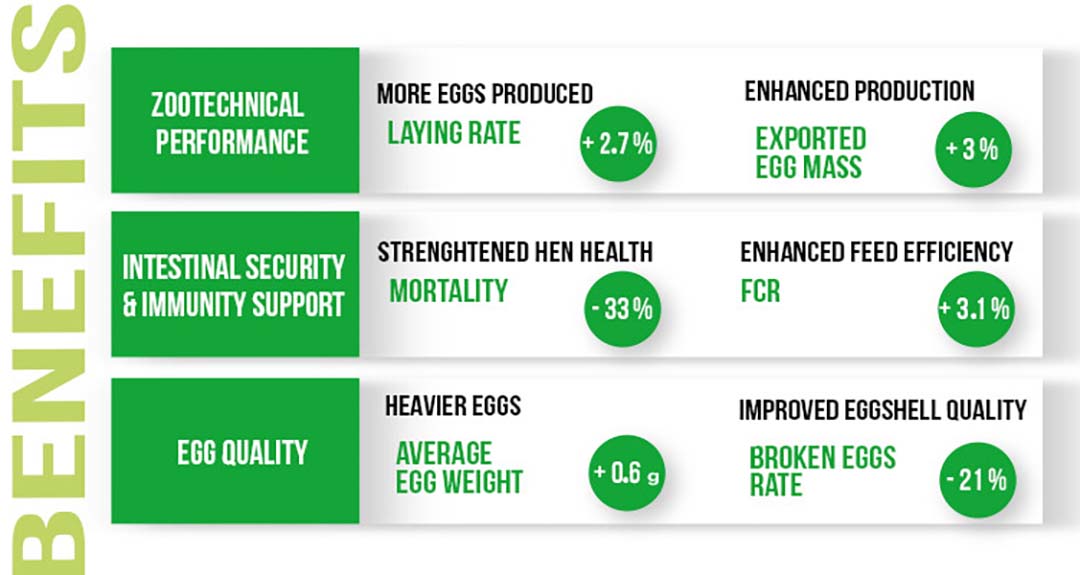
Overall, this powerful meta-analysis (over 60 studies!) highlights the benefits of using Bactocell on laying hens, whatever the housing or production phase (Demey et al., 2024).


